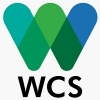Founded in 1895 as the New York Zoological Society (NYZS), the Wildlife Conservation Society's (WCS) goal is to conserve the world's largest wild places in 16 priority regions, home to more than 50% of the world's biodiversity. Particularly, its mission is to save wildlife and wild places worldwide through science, conservation action, education, and inspiring people to value nature.
WCS has worked in the Coral Triangle for over 20 years. Its marine and terrestrial programs in Indonesia, Papua New Guinea, Solomon Islands, Malaysia and Fiji are nationally and internationally recognized. WCS programs in the region have grown across to include more seascapes, more local partners including new initiatives in Solomon Islands.
WCS has technical strength in protected areas designation and management, species conservation (with special expertise in sharks/rays, cetaceans and wildlife trade), small-scale fisheries management, ridge-to-reef management, integrated coastal management, community-based resource management, and climate change adaptation.
"On the ground and in the water in the Coral Triangle: WCS in Indonesia, Papua New Guinea, Solomon islands and Fiji"
Contact Details
Marine Biodiversity and Support of Coastal Fisheries in the Coral Triangle project
The project Marine Biodiversity and Support of Coastal Fisheries in the Coral Triangle ("Project") concerns the protection of diverse marine ecosystems and important coastal fisheries in Indonesia, Philippines and throughout the Coral Triangle region. The Outcome of the Project is to contribute to the conservation of Coral Triangle's biologically diverse marine ecosystems and important fisheries through the creation and improvement of selected marine protected areas (MPAs) and MPA networks, improved management of some commercially and ecologically important, particularly small-scale, fisheries, improved management linked to selected terrestrial ecosystems, underpinned by sustainable finance models. The Project builds upon the ongoing KfW-IKl/BMU project "Marine Biodiversity and Support of Coastal Communities in Sulawesi/ Coral Triangle".
In North Maluku, Indonesia
The project will work directly with 20 villages (10% of total villages in the project) adjacent to 5 MPAs (Rao Island–Cape Dehegila, Pulau Mare, Kepuluan Guraici, Gugusan Pulau Widi, Pulau Makian and Pulau Moti). It will support fisheries management and make an impact to the local communities in 220 villages in 5 districts (Ternate, Tidore Kepulauan, Halmahera Tengah, South Halmahera, Pulau Morotai of which around 10% are fishers.
The project will establish two near-shore snapper/grouper fisheries, and support the emerging MPA marine tourism sector; both of which are threatened by illegal and unsustainable resource extraction
In North Sulawesi, Indonesia
The project will with 3 MPAs in 3 districts (North Minahasa, Sitaro and Sangihe), with approximately 38,000 living in or adjacent to the MPAs. It will ilot an integrated land-sea management approach at the northern Sulawesi landscape of Bogani Nani, which includes the Bogani Nani-Wartabone National Park, and watersheds.In both provinces, the project will engage directly with the provincial-level government and its agencies from Bappeda, DKP, BSKDA and community surveillance groups (POKMASWAS) to survey and monitor for violations of fisheries and MPA regulations. It will develop community agreements at appropriate scales to ensure that project-related commitments from government, communities and project partners are clear. In addition, it will ensure that women have equitable access to the economic opportunities presented by fisheries.
Philippines
The project will focus on the province of Palawan (the location of the Palawan Corridor Key Landscape for Conservation) and provinces in the south of Mindanao and shall start an initial assessments and scoping (Year 1) -determine project sites and priority activities. It may include creation of sustainable fisheries co-management systems, enhanced management of MPAs, integrated land-sea management approaches, deployment of SMART MPA patrol information systems, creation of fisheries harvest control systems in MPAs, and support to counter illegal fishing and marine wildlife trafficking.
Regional (CTI – CFF)
-
The project will support technical and capacity inputs on:
- sustainable finance,
- fisheries climate change modelling and adaptation planning,
- IUU fishing and wildlife trafficking, and
- integrated land-sea management approaches.






